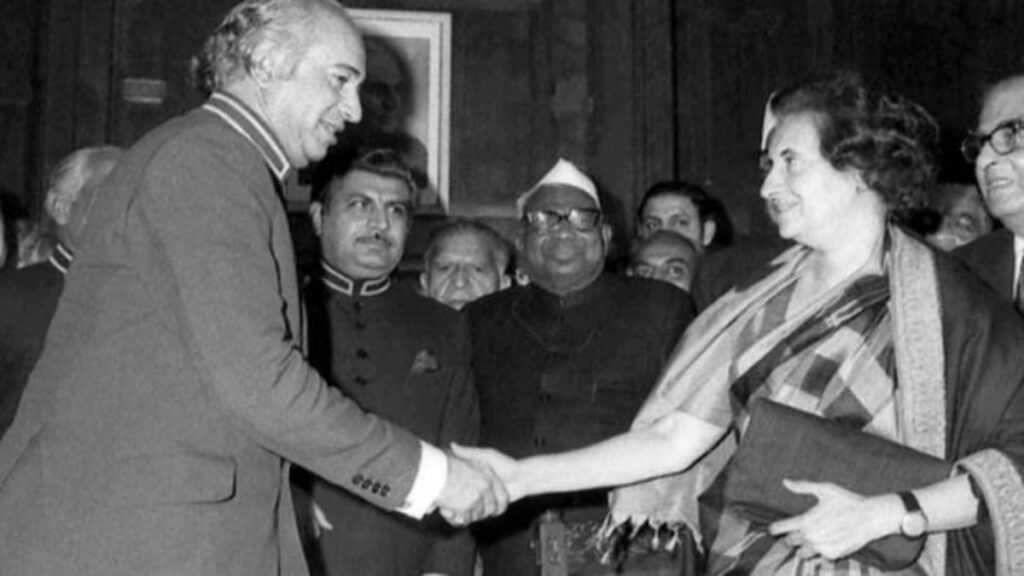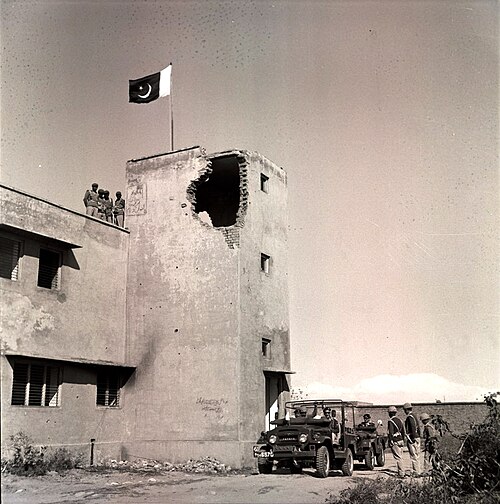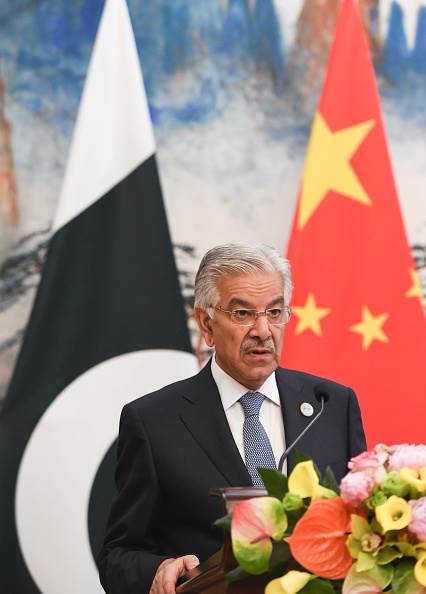Pakistan Scraps Shimla Agreement After Indian Airstrikes
In the aftermath of India’s Operation Sindoor — a precision airstrike on terrorist camps in Pakistan following the Pahalgam terror attack — Pakistan has escalated its rhetoric on Kashmir. In a televised interview, Defence Minister Khawaja Asif declared the 1972 Shimla Agreement null and void, calling it a “dead document.” This agreement, signed after the 1971 India-Pakistan war, formed the bedrock of bilateral peace mechanisms — particularly over Kashmir and Line of Control (LoC).
But Asif’s remarks do more than discard diplomacy; they signal a strategic shift towards internationalizing Kashmir, hinting at the 1948 UN resolutions. Ironically, this move could backfire on Islamabad, especially in territories like Chhamb, which Pakistan controls only because of the Shimla Agreement.
Why Pakistan’s Rejection of Shimla Agreement Matters Globally

The Shimla Agreement of 1972 was a pivotal post-war treaty where India and Pakistan committed to resolving issues — especially Kashmir — bilaterally. It converted the 1949 ceasefire line into the Line of Control (LoC) and prevented third-party mediation.
By declaring this agreement defunct, Pakistan is officially ending bilateral diplomacy, returning to pre-1972 UN frameworks. Khawaja Asif claimed that the LoC should now be treated as a ceasefire line, reviving Pakistan’s old narrative from the 1948 UN resolutions, which called for a plebiscite in Jammu and Kashmir.
This declaration comes as Pakistan feels cornered — with India revoking Article 370 in 2019, downgrading J&K’s autonomy, and holding the Indus Waters Treaty in abeyance after terror incidents. But moving away from Shimla may weaken Pakistan’s legal standing on Kashmir, as international opinion largely favors bilateral solutions between nuclear states.
Chhamb Sector – A Strategic Boomerang for Pakistan

One of the most critical consequences of discarding the Shimla Agreement is the status of the Chhamb sector — a territory originally recognized as Indian land in the 1949 ceasefire. Though Pakistan briefly occupied it in 1965, India regained it, and again lost it during the 1971 war.
Under Shimla, India agreed to let Pakistan retain Chhamb, in exchange for gains like the Chorbat Valley and some Ladakhi villages. But with the agreement declared void, India can now argue that Chhamb must be returned.
This is no minor claim. Chhamb is strategically vital, and Pakistan had even renamed it Iftikharabad, resettling the area and displacing local Indian-aligned families. If Islamabad says Shimla is dead, the legitimacy of Pakistan’s hold over Chhamb dies with it — giving New Delhi a strong diplomatic argument.
Bilateral Breakdown Could Trigger More Strategic Shifts
Pakistan’s broader rejection of bilateral frameworks could have a domino effect. After India suspended the Indus Waters Treaty, Pakistan had already “suspended” Shimla. But now, Asif’s remarks show intent to fully abandon all bilateral obligations.
This opens up several risks:
- India may assert more aggressively on PoK, including not just Chhamb but across the LoC.
- Global actors may grow wary of Pakistan’s treaty reliability, weakening its standing in forums like the UN and OIC.
- Legal ambiguities could complicate not just Kashmir talks, but future agreements on trade, water, and security.
New Delhi, on the other hand, has a consistent narrative — Kashmir is an internal matter, and all disputes are to be resolved bilaterally. This makes India’s case more acceptable on the international stage, especially when Pakistan is seen as walking away from signed commitments.





















